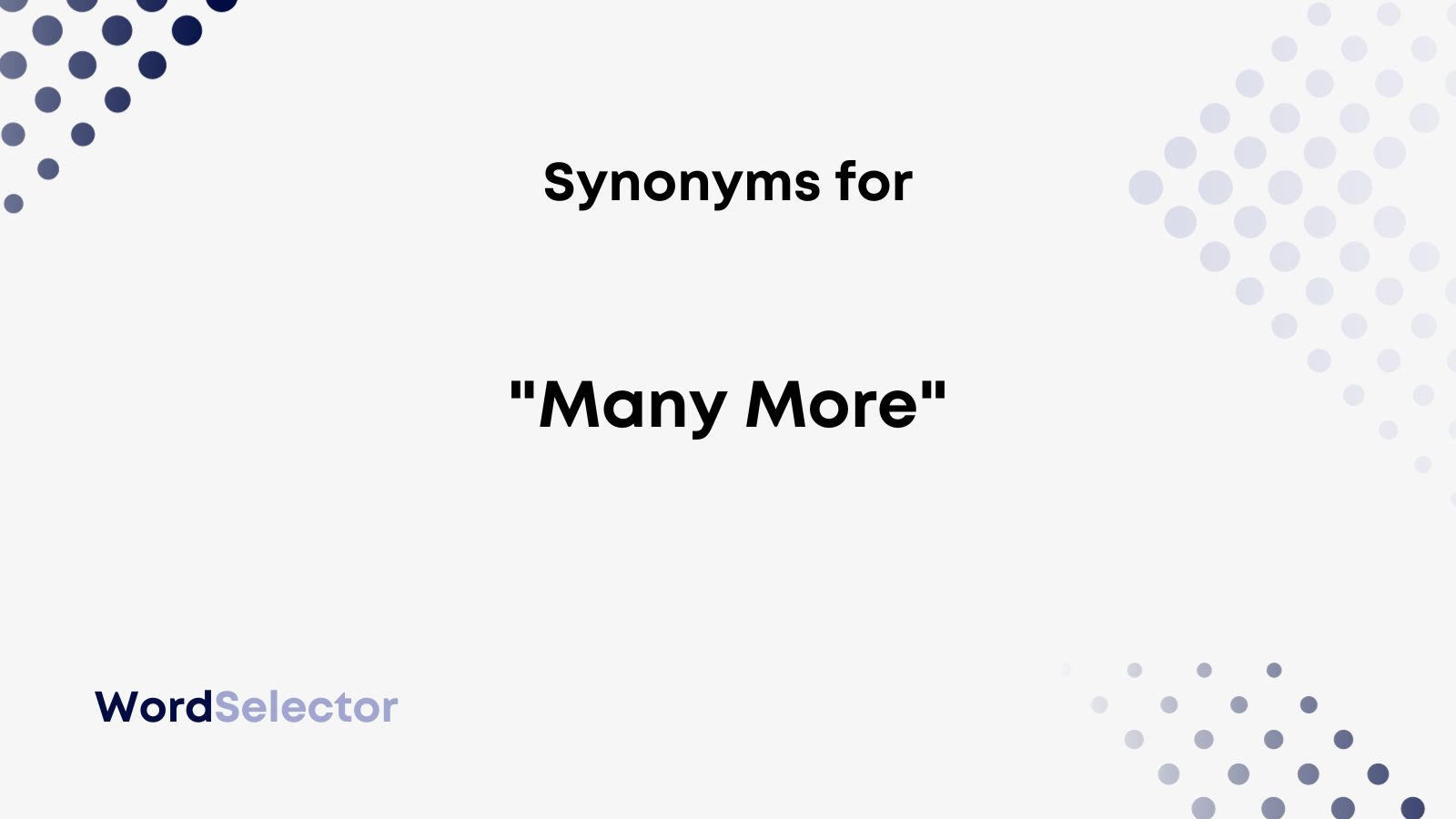Are you trying to talk about there being “many more” of something?
But you’re slightly worried “many more” isn’t formal or professional enough for your writing, right?
Well, it’s a good thing we’re here to help.
This article will show you how to say “many more” in different situations to keep your writing fresh.
Other Ways to Say “Many More”
- Numerous additional
- Countless
- A multitude of other
- Plenty more
- A plethora of additional
- An abundance of
- Several more
- A great number of other
- A wealth of additional
- Plenty of other
- A copious amount
- A myriad of
KEY TAKEAWAYS
- “Many more” is a simple phrase that works well to show that multiple things follow the same rule.
- “Numerous additional” is effective as a formal synonym if you’re trying to mix things up in emails or essays.
- “Countless” is great as an informal alternative to show you better ways to write in different contexts.
Keep reading to learn another way to say “many more.” We’ve touched on the best formal and informal alternatives to show you what’s going to work best.
You can also read the last section to learn whether “many more” is correct. After all, you never know when it might be handy to include it in your writing again!
Numerous Additional (Formal)
You can use “numerous additional” as a professional way to say “many more.”
Generally, this is a great formal email that shows you’re trying to express the sheer volume of something.
It implies that there are loads of extra things someone hasn’t considered.
So, it’s worth using this when talking to a business partner. You might be able to describe your client or customer list like this to let them know how well your business is doing.
Check out this email example if you still need to know how to use this phrase:
Dear Ms. Smith,
We have numerous additional customers ready to order our products.
Therefore, you do not have to worry about our projected profits.
Best wishes,
Samantha O’Connor
It’s also good to include this in academic writing. After all, it’s a good opportunity to impress a reader and talk about a large number of results you might have gotten from an investigation.
Also, you can review this example to learn a bit more:
There were numerous additional results to consider. However, I pooled them together to get the graph in the following figure.
Countless (Informal)
For something more informal, try “countless.” It’s a good option as another way to say “many more.”
For starters, it’s one word. Therefore, it helps to streamline your writing.
It’s also more conversational and less problematic. So, it puts less pressure on the people reading your emails or essays when you’re talking about large quantities of something.
Try using it when writing to an employee. It’s an excellent opportunity to talk about something you deem to be “countless,” especially if it’s a positive update for the employee.
Here’s a helpful example to show you more about it:
Hey Abbie,
I’ve received countless good reviews about your conduct lately.
I wanted to reach out to personally congratulate you on a job well done.
Best wishes,
Brody Jones
It’s also good to use this when writing an essay. After all, it allows you to branch out and explore a slightly less formal tone.
So, here’s a helpful essay sample to show you more:
I have reviewed this countless times and gotten the same result. Therefore, I don’t think there’s anything left to do!
Is It Correct to Say “Many More”?
It is correct to say “many more.” It’s a good phrase to use when showing that multiple things follow the same rule or are included in something you’re referencing.
Generally, you can use it in a formal email. It’ll let you discuss however many things you need to when you’re trying to get your point across.
So, you can check out this email sample to learn more:
Dear Ms. Garth,
Many more of us would like to assist you with this.
Please let us know what we need to do to make this transition as easy as possible.
Yours,
Kyle Bend
However, you need to pay attention to some of the variations that come along with this. If you’re not careful, you could easily make a mistake!
The first variation is:
- Much more
“Much more” works best when explaining that something requires more input to work. “Many more” is better when discussing people or things that could influence an outcome.
For instance:
You need to put in much more if this will work.
Many more can help with this.
Second, you can use this variation:
- Many others
“Many others” only refers to people. “Many more” often refers to people and things, so it’s a bit more general and versatile.
For example:
Many others will provide us with the aid we need.
Many more items are on their way.
You should bookmark this page before you leave! Then, you ca remind yourself of the best synonyms to use in place of “many more.”

